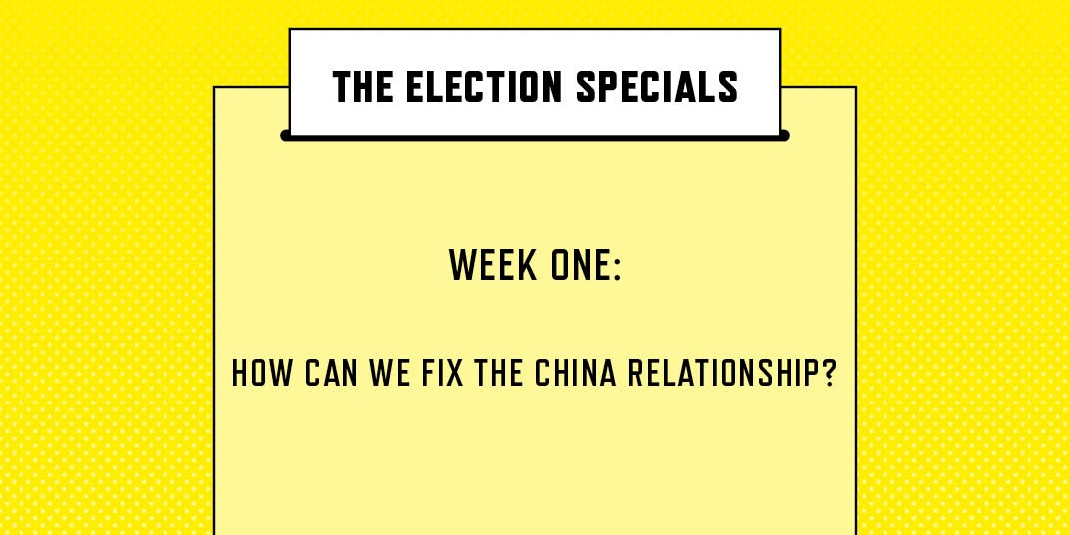Introduction
In most Australian election campaigns, foreign policy receives relatively little attention. This is partly because the major parties tend to take a bipartisan approach to foreign affairs, and also because foreign policy is somehow seen as having less immediate impact on everyday concerns of voters than domestic policy.
But this reasoning is flawed. If there is a foreign policy consensus, it should be tested. And bread-and-butter concerns – such as the price of petrol, the availability of vaccines, or interest rate hikes – depend on global developments, and on the government’s ability to respond to them.
So, for each week of this election campaign, Australian Foreign Affairs will address a major question of foreign policy and will seek answers from leading thinkers about how the government should respond. These Election Specials will be published in AFA Weekly on every Wednesday of the campaign.
Thanks for subscribing, and thanks to our respondents for helping to expand the horizons of the national debate.
Australia’s future direction in the world is too significant to be set in silence.
Jonathan Pearlman
Editor
How can we fix the china relationship?
Yun Jiang, Australian Institute of International Affairs (AIIA) China Matters Fellow:
After the election, the quickest way to improve our relationship with the People’s Republic of China is for the prime minister and ministers to change the tone and rhetoric when speaking about China.
We have underlying different interests to China on many issues, but we do not need to highlight or emphasise each and every one of these differences in public. We should approach China in the same way that we approached India when we disagreed about India’s stance on Russia’s invasion of Ukraine.
If we can understand that India has different interests and refrain from publicly criticising it, then surely we can do the same with China on some issues.
Just like with India, the prime minister or the foreign minister should also send wishes for China’s national or cultural holidays and express condolences for major tragedies.
These are symbolic steps that can be taken to shift the tone of relationship without changing underlying policies.
Lavina Lee, School of Social Sciences, Macquarie University:
China’s new Ambassador to Australia, Xiao Qian, has raised hopes that a thaw in relations may be possible by meeting Australia “halfway”. Presumably, this would require Australia to abandon at least half of the policy positions named in Beijing’s list of fourteen grievances, which China believes has poisoned bilateral relations. Any liberal-democratic government would be hard-pressed to choose which seven of these domestic and foreign policy positions to capitulate on without abandoning Australia’s sovereign interests, values and independence. For its part, Beijing is not offering to cease its coercive activities, abandon its expansionist territorial claims, or desist from interfering in Australia’s domestic affairs.
Australia needs to continue to enhance national resilience when it comes to protecting domestic institutions, diversifying supply chains and trade relationships, strengthening defence capabilities, and working with other countries to deter further Chinese aggression. Doing all this will allow it to better protect itself against Chinese coercion and provide the foundations for a more stable and respectful relationship with China. Failure to do this will only invite further Chinese coercion, which will lead to even greater tension and instability in the relationship.
Rory Medcalf, National Security College, Australian National University:
The question could be read as implying that we, Australia, broke the relationship, absolving China for its affronting choices. It treats Australia–China relations as somehow separable from China’s domineering behaviour towards many nations. And it suggests an easy fix is possible, whereas the demands accompanying Beijing’s coercion go deep, to questions of Australian interests, values and identity.
A more useful question is: How do we attain the relationship we want? That involves persuading China to accept Australia as it is – a democracy with free media and forthright politicians, and a multicultural sanctuary for dissent. This does not mean gratuitous provocation of China, tolerance of racism or politicisation of security: quite the opposite. Our national security measures of recent years were a necessary reality check. They give us a basis for expansive foreign policy – building creative coalitions across the Indo-Pacific and globally, not to confront China but to advance our interests and principles. Our watchword should be neither fear nor greed but confidence. The real challenge is to uphold and renew those qualities that give us staying power: democratic institutions, integrity, resilience, tolerance and mutual respect. So the answer is about much more than foreign policy.
Hugh White, Strategic and Defence Studies Centre, Australian National University:
There is no going back to the old relationship with China, because China’s power and ambitions have changed fundamentally, and are not changing back. So fixing the relationship does not mean just trimming our diplomatic sails. It means rethinking the relationship from the ground up, asking what kind of relationship we should realistically aim to have with a country as powerful, as important and as (at best) indifferent to us as China is? And that is not easy, because we have never had a relationship like this before.
Where to start? One: don’t expect America to mediate the relationship for us, as it has done in the past, or anyone else for that matter – we face China essentially alone. Two: accept that we will have to accommodate China in ways we’d rather not, because that’s what happens between strong states and weaker ones. Three: think carefully about what we are, and what we are not, prepared to concede. Four: build our capacity to operate in this much tougher world both diplomatically and militarily, which we are woefully unprepared to do now.
And yes, it might help if we stop deliberately provoking Beijing to score political points at home.
Next week: Are nuclear submarines the answer?
This first article is open for everyone to read, but the rest of The Election Specials will only be visible to AFA subscribers.
Browse subscription options here.







